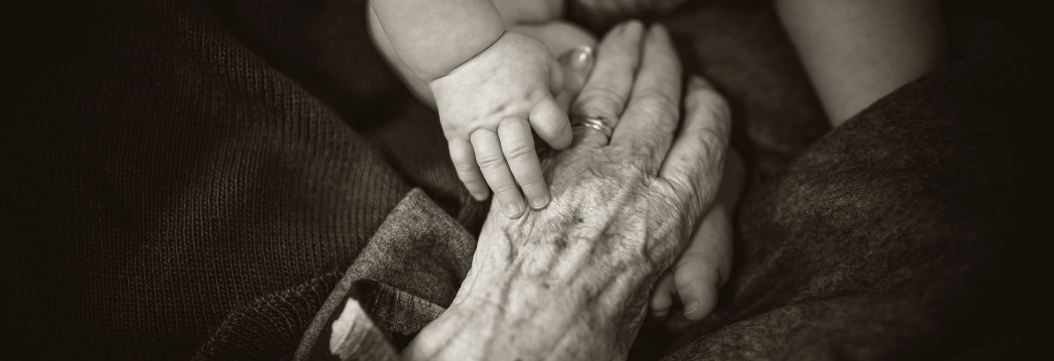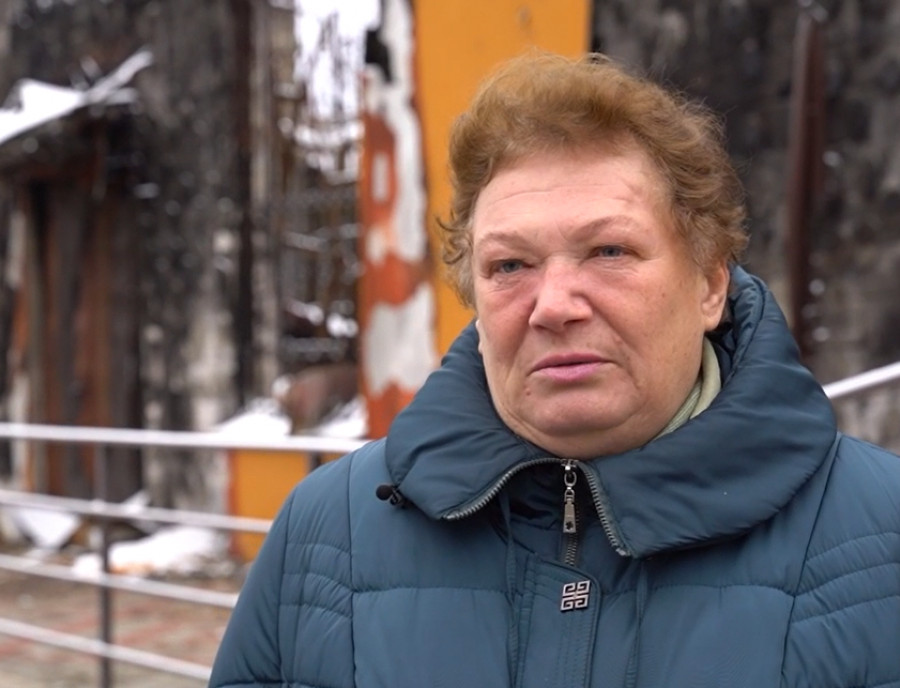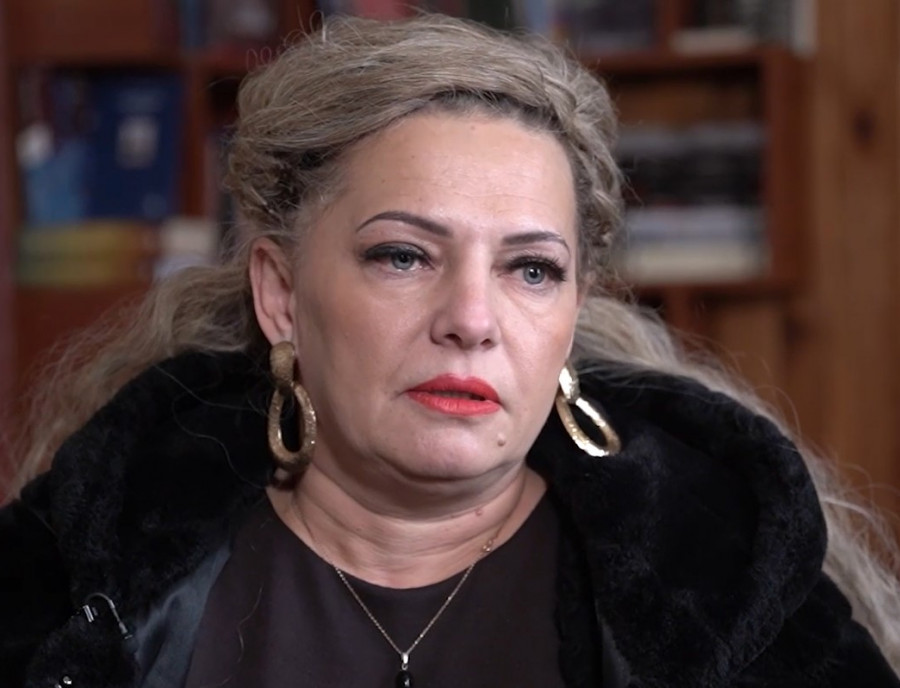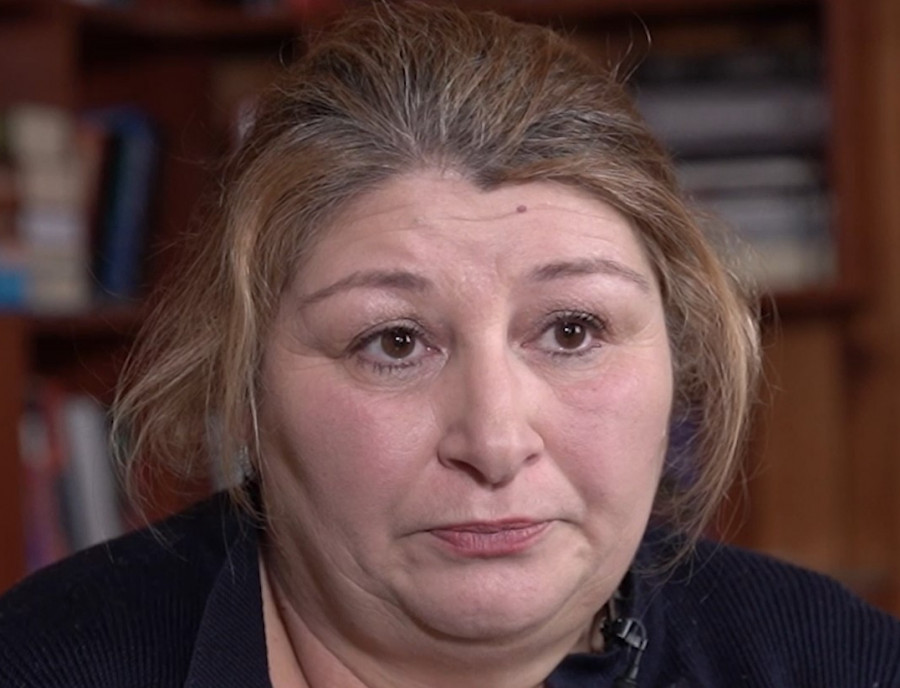He left his hometown Sevastopol and started life from scratch in Kyiv region. Many people in the village of Ivankiv know Mykola Tykhonchuk, an IDP from the Crimea. From the beginning of the war, he supplied the inhabitants of the village with water. From morning till night, he was getting water from the well. Every day there was a queue of a hundred people.
After the occupation, Mykola and his wife continued to help people. The couple work as volunteers at the local humanitarian centre almost every day.
I am Mykola Tykhonchuk, born in 1958. Originally, I come from Sevastopol. I have been living in Ivankiv since the end of 2015. I have my house and an enterprise back there. We produced forged grates, gates and fences. We are welders and blacksmiths. We work together with my brother-in-law. My sister’s husband. We had a joint enterprise there for two of us. We wanted to leave in 2014, but my mother... She had cancer, and his mother had her feet amputated – she had diabetes. That is why we could not leave there. At the end of 2014, on 18 December, my mother died, and on 23 [December] his mother died too. They died one after another...
It was an interesting situation with the passport office, not the passport office, but the migration office or something like that... Those who wanted could submit an application refusing to take up Russian citizenship, but it was done in a rather artful or tricky way. They did not write, “I want to become a Russian citizen.” No. It was like…
Well, the attitude was as if we were slaves. That we were going into Russian citizenship together with the land.
They said, “Those who do not want it can write a refusal application,” and we came to write a refusal... And near us, they issued passports to those who came the first to get them, the most willing ones. So we stood there. There were fewer of us, those with refusals. Well, my brother-in-law did not come. He said, “Why do I need to waste my time in that crowd? I just won’t get this passport, that’s all.” We were able to do it. However, those people who were employed somewhere, they were told, “If you don’t get a passport, you will be fired.
You won’t get your pension allowance.” They had to come and get it, forcibly, so to speak. They were forced to receive those passports. And while we were standing there, there was a conversation among us, those who sought refusal. There were two or three Russians. They said, “We ran away and came here but they got us here too!” They received a residence permit in Ukraine but they did not manage to get [Ukrainian] passports. Well, some of them were from Ural, some from central Russia. And other people, who stood nearby, listened to them and asked
“Well, is it so bad there, in Russia?” One man said (I liked it), “Well, try it and you will see what Russia is about.”
I have a very negative attitude to it, to this “Russian world”. So, in the spring we left and came here. We started looking throughout Ukraine where to buy some housing. As a result, we bought it at the end of the summer. We bought it here. The deal was finalized in September. Well, by December we began to move here. And since April 2016, we have been constantly living here, one might say.
The first time, when the water supply was cut off, my neighbours and I went to look at the water wells. My well and their well... Their well had not worked for about five years. It was in a worse condition. While my well had been in operation all the time. So we checked it and they all left. Before leaving, I myself pulled out a bucket and just started moving away from the well with that bucket... I noticed two cross-country vehicles driving on the road along the river right next to our house. I noticed letters V on their doors. I walked calmly, went into the yard and approached the house. I saw that they drove up to our gate and stopped.
They were talking about something and watching around. They stood there for some time and then reversed on their cars. We have a small street going up there. This street zigzags and they were probably scared to go there because nothing could be seen ahead. Later, when my neighbour and I were standing near the well, I noticed some movement there.
I said, “It looks like the orcs [the Russians] have come.” He turned, “Where? There is no one.” And then I noticed their heads appearing from behind the gate and I said, “There they are”.
They began to knock out the gate there. Then one of them climbed over, opened it and they went in. They knocked out the door to the house. One of them ran out, some 50 metres from the well, ran out from behind the garage and having noticed us, racked the slide and raised the machine gun up. We asked, “What are you doing?” We had not seen our neighbour. Well, he had left a long time ago. He is either the former Berkut [special police unit officer] or something like that. Well, they came to him because he is the former police officer. They visited everyone like that, the ATO soldiers. Some two former ATO [anti-terrorist operation] soldiers lived near us. They [the Russians] came to one of them. Well, one of them had left. He lived in Sukachi. Well, he was constantly staying here. He only spent the night there. They came to his place but they did not find him. And the second one could not leave, as his mother is sick. They detained him. They took his phone and his combat veteran ID. They took everything and said they would bring everything back in two days. They did not touch him though. They asked, “Did you go to fight in Donbass voluntarily?” He said, “No, I was called up [for the military service]”. Well, that was it. They did not come to him anymore until the end of the occupation.
However, they came to me every day to get some water. We talked to them that’s why I know so much about them. There was no water in Ivankiv from the time when electricity was cut off. The power supply stopped on 5 March, I think, and water disappeared then. Well, everyone wants to drink. Everyone needs water. People went to the river and brought some river water in buckets for their household needs, and as for drinking water, we have two water wells nearby.
I gave people water from my well. They came to me. There was a queue all day long. I pulled this water up out of the well and poured it for them.
I usually went out at seven [in the morning] and was busy until six in the evening, when it was almost getting dark. Well, and sometimes somebody came again, “Are you done?” “Well, let’s go,” I returned. About a hundred people came every day. There were even people who came by car to take water for all their neighbours in a multi-apartment block. Two or three people came with a bunch of those cans and bottles and we filled them all with water. I pulled water up manually. Normally, I would put down a pump and would pump water, but at that time, I could not turn the pump on. So I had to pull the water up manually every time. Well, all day long. Sometimes, I felt that I could not bend my elbow and it hurt. When I meet some of those people, they still thank me. Some of them say [that] they already miss my water. I reply, “Well, come again. I water the garden in the evenings anyway. Come and I’ll get you some water.” The children gave it to me. They signed it: “To Mykola, the best Aquarius (Water Bearer)”. There were two girls. Well, the older one gave this to me and the younger one watched it. Then she took out a chocolate medal and gave it to me too.
When quoting a story, a reference to the source – the Museum of Civilian Voices of the Rinat Akhmetov Foundation – is mandatory, as follows:
The Museum of Civilian Voices of the Rinat Akhmetov Foundation https://civilvoicesmuseum.org/






